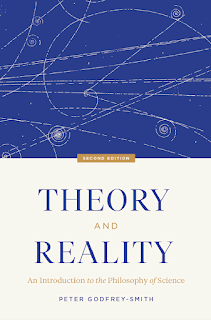This book review was written by Eugene Kernes
“Both during these classical discussions and more recently, a problem for empiricism has been a tendency to lapse into skepticism, the idea that we cannot know anything, or can only know much less than is usually supposed, about the world and its workings. There are many kinds of skepticism, but two are especially important here. One is external world skepticism, which questions whether we can even know anything about a physical world that might lie behind the flow of sensations we receive. The second form, made vivid by Hume, is inductive skepticism: why do we have reason to think that the patterns found in past experience will also hold in the future?” – Peter Godfrey-Smith, Chapter 2 Empiricism, Page 35
“”Falsificationism” was the name Popper gave to his solution. Falsificationism claims that a hypothesis is scientific if and only if it has the potential to be refuted by some possible observation. To be scientific, a hypothesis has to take a risk, has to “stick its neck out.” If a theory takes no risks at all, because it is compatible with every possible observation, then it is not scientific.” – Peter Godfrey-Smith, Chapter 4 Popper: Conjecture and Refutation, Page 79
“With a social structure of this kind, the “dialogue between imaginative and critical voices” can become a genuine to-and-fro. We have social mechanisms in place that reliably bring about the checking and scrutinizing of ideas. Some rather dogmatic individuals can work within the system and perhaps play a useful role, provided that flexibility and open-mindedness is found in the community as a whole” – Peter Godfrey-Smith, Chapter 14 The Future, Page 300
Overview:
What defines science, is still in conflict. How science functions has changed over time, and continues to change. This is a history to the philosophy of science, the foundational ideas to science. Questioning how science searches for truths, for patterns. Empiricism has a skeptical edge, questioning how much can actually be known about how reality functions. External skepticism questions the patterns that frame the sensations of the world. Inductive skepticism questions how much the past experience predicts the future.
Generalizations have limited value because of the problem of induction, for generalizations do not contain all observations. The not yet observed can provide contradictions to the generalized, with a single contradiction changing the entire value of an idea. Confirmation of theory, does not mean a theory has been proven. Confirmation provides partial rather than decisive support for theories. Theories need to prove themselves by putting themselves to tests that can potentially falsify them. Theories need to take risks. Ideas can be logically consistent, but that does not mean empirically valid.
There are those who think that objective facts can be
separated from value judgements, are part of descriptive theory. Others who think that facts and values cannot
be separated, are part of normative theory which also raises claims about what
should be. Some ideas might be more
objective, but usually there are values attached. Scientists do not passively receive
information. They actively select
information. Science is about the
choices that the scientists make.
Caveats?
This book was meant for students, with a broader audience in
mind. The results are mixed. The book can act as a reference book, and be
a used as an introduction to the various ideas which are part of science. But, there are sections that would be better
understood under the guidance of an instructor. Written in a manner that requires someone who
already has knowledge about the ideas to understand the ideas further, or be
explained in lecture form.
